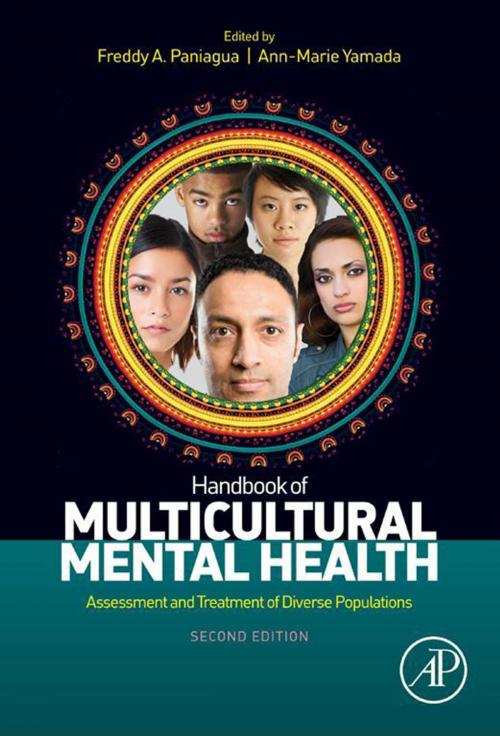Handbook of Multicultural Mental Health
Assessment and Treatment of Diverse Populations
Nonfiction, Health & Well Being, Psychology, Counselling, Clinical Psychology, Medical| Author: | ISBN: | 9780123978127 | |
| Publisher: | Elsevier Science | Publication: | July 19, 2013 |
| Imprint: | Academic Press | Language: | English |
| Author: | |
| ISBN: | 9780123978127 |
| Publisher: | Elsevier Science |
| Publication: | July 19, 2013 |
| Imprint: | Academic Press |
| Language: | English |
The Handbook of Multicultural Mental Health, Second Edition, discusses the impact of cultural, ethnic, and racial variables for the assessment, diagnosis, treatment, service delivery, and development of skills for working with culturally diverse populations. Intended for the mental health practitioner, the book translates research findings into information to be applied in practice.
The new edition contains more than 50% new material and includes contributions from established leaders in the field as well as voices from rising stars in the area. It recognizes diversity as extending beyond race and ethnicity to reflect characteristics or experiences related to gender, age, religion, disability, and socioeconomic status. Individuals are viewed as complex and shaped by different intersections and saliencies of multiple elements of diversity.
Chapters have been wholly revised and updated, and new coverage includes indigenous approaches to assessment, diagnosis, and treatment of mental and physical disorders; spirituality; the therapeutic needs of culturally diverse clients with intellectual, developmental, and physical disabilities; suicide among racial and ethnic groups; multicultural considerations for treatment of military personnel and multicultural curriculum and training.
- Foundations-overview of theory and models
- Specialized assessment in a multicultural context
- Assessing and treating four major culturally diverse groups in clinical settings
- Assessing and treating other culturally diverse groups in clinical settings
- Specific conditions/presenting problems in a cultural context
- Multicultural competence in clinical settings
The Handbook of Multicultural Mental Health, Second Edition, discusses the impact of cultural, ethnic, and racial variables for the assessment, diagnosis, treatment, service delivery, and development of skills for working with culturally diverse populations. Intended for the mental health practitioner, the book translates research findings into information to be applied in practice.
The new edition contains more than 50% new material and includes contributions from established leaders in the field as well as voices from rising stars in the area. It recognizes diversity as extending beyond race and ethnicity to reflect characteristics or experiences related to gender, age, religion, disability, and socioeconomic status. Individuals are viewed as complex and shaped by different intersections and saliencies of multiple elements of diversity.
Chapters have been wholly revised and updated, and new coverage includes indigenous approaches to assessment, diagnosis, and treatment of mental and physical disorders; spirituality; the therapeutic needs of culturally diverse clients with intellectual, developmental, and physical disabilities; suicide among racial and ethnic groups; multicultural considerations for treatment of military personnel and multicultural curriculum and training.
- Foundations-overview of theory and models
- Specialized assessment in a multicultural context
- Assessing and treating four major culturally diverse groups in clinical settings
- Assessing and treating other culturally diverse groups in clinical settings
- Specific conditions/presenting problems in a cultural context
- Multicultural competence in clinical settings















